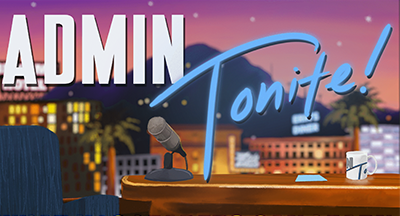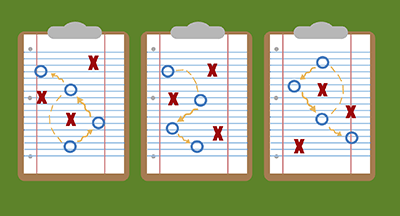.jpg)
If we had a nickel for every time we read “AI” in conjunction with a veiled admonishment that we’re not as productive as we could be, we’d have so many nickels.
Gripes aside, artificial intelligence (AI) can serve as an assistant to teachers, with the right support from the district. Let’s talk about it.
AI tackles automation tasks—teachers tackle productive failure
To learn you must be willing to fail, to be corrected, to take feedback, to try again.The yes-man of AI is not going to help very much with that process. Agreeable large language models (LLMs) mostly use word math to rearrange the most likely match for your prompt—and because they’re simply fulfilling a prompt without any type of oversight or fact-checking, there’s a lot of agreement.
It feels good to be heralded as a genius, but congratulating folks on the wrong answer is how AI gets away with hallucinations (a cutesy term for the misinformation LLM may generate when a good answer isn’t readily available).
Instead, not only are teachers expert coaches in their subject matter, but they’re also humans who know a thing or two about helping children learn the process of productive failure: try, try again.
Read more about creating a safe place for productive failure
This is why delegating automation, brainstorming, summarizing documents, and other administrative tasks to AI preserves time and energy for teachers’ expertise.
AI without PD is not OK
In a 2024 survey for Edweek, 58 percent of teachers reported receiving no professional development to guide AI use in teaching. 68 percent said they are not using AI tools in the classroom. This makes perfect sense, because AI without proper PD is not helpful. In fact, it may be incredibly dangerous from a cybersecurity standpoint.Data security is extra important in school districts because they’re a top threat for criminals looking to breach network structure and steal personal information from staff, students, families, and the school business office.
Before suggesting the use of AI to teachers, administrators and the school board must take the lead in creating:
- Policies for AI use in the district.
- Guidance for when not to use AI.
- Training for how to craft prompts that will actually result in useful responses.
AI is a tool. You are a treasure.
It may feel like it goes without saying, but it’s important to say anyway: You do not need to embrace AI to be a successful teacher. Messaging around AI should not lead to feeling compelled to use AI, although it can make a person feel like they’re being left behind.Whereas if people are truthful about all AI can and cannot do, it underscores the idea that AI is a good assistant, but a poor teacher. It cannot create anything new, cannot make sharp and student-centered decisions, and certainly cannot build a relationship with children as a safe adult. Not only do teachers have a responsibility to prepare children for a future in which AI tools are widely used, they can also empower children to embrace humanity as a superpower. Placing the emphasis on “artificial” rather than on intelligence can help maintain perspective—AI is only as smart as the data it rearranges, and the prompts people write.
Perhaps the students in your schools will grow up to wield that artificial magic, or better yet, create their own uniquely human contribution.
Follow-up resource: How much should AI know about your district?
We asked ChatGPT what school leaders should know about using AI, and it responded with some thought-provoking answers (warnings?).WHAT'S NEXT FOR YOUR EDTECH? The right combo of tools & support retains staff and serves students better. We'd love to help. Visit skyward.com/get-started to learn more.

|
Erin Werra Blogger, Researcher, and Edvocate |
Erin Werra is a content writer and strategist at Skyward’s Advancing K12 blog. Her writing about K12 edtech, data, security, social-emotional learning, and leadership has appeared in THE Journal, District Administration, eSchool News, and more. She enjoys puzzling over details to make K12 edtech info accessible for all. Outside of edtech, she’s waxing poetic about motherhood, personality traits, and self-growth.
.jpg)




